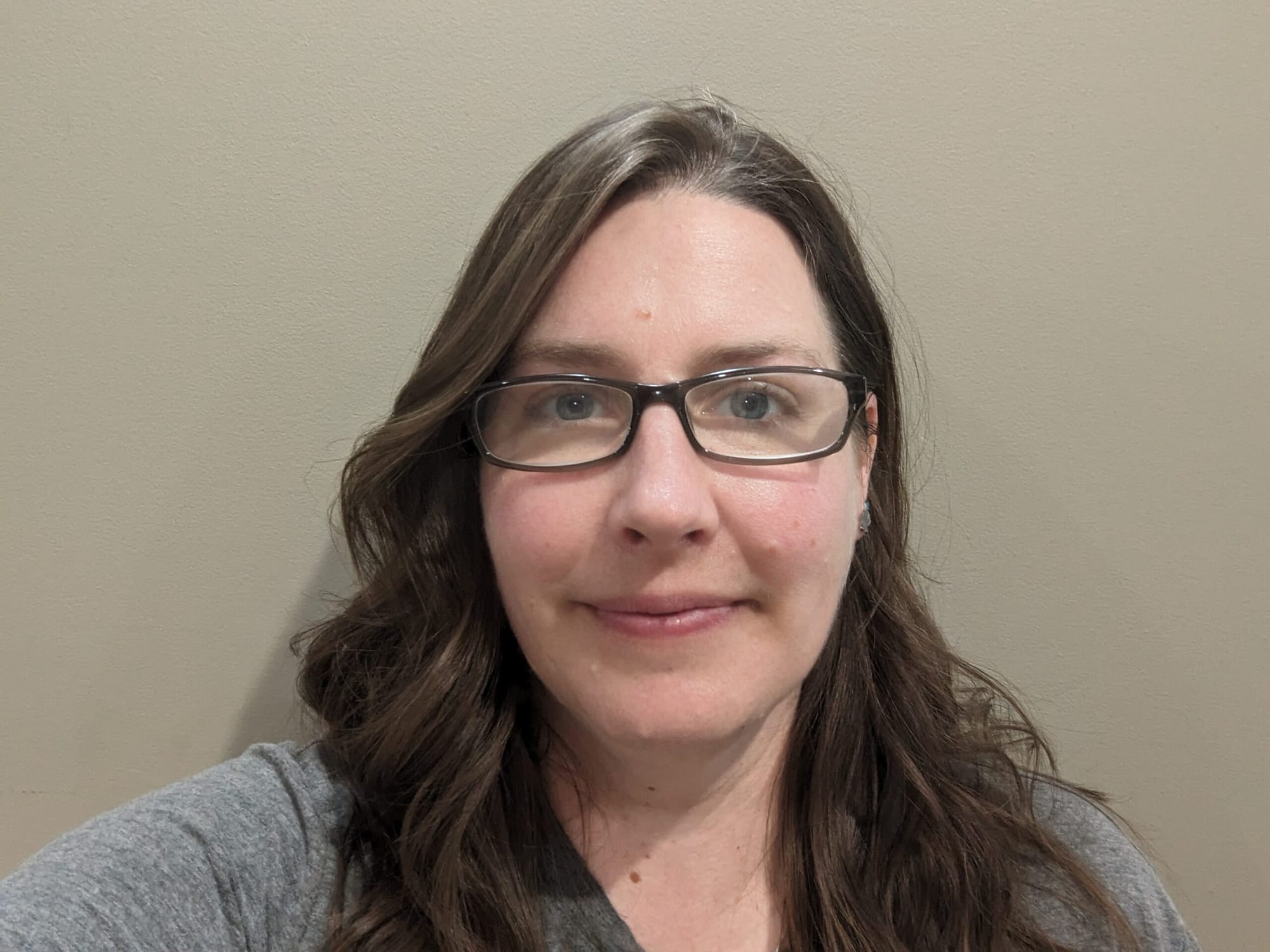'An important open government issue': Plaintiff seeks closed session minutes in lawsuit
The Ottawa County Board of Commissioners opted not to discuss a proposed settlement offer that could have resolved one of a handful of lawsuits stemming from decisions made by the previous board, led by far-right group Ottawa Impact.
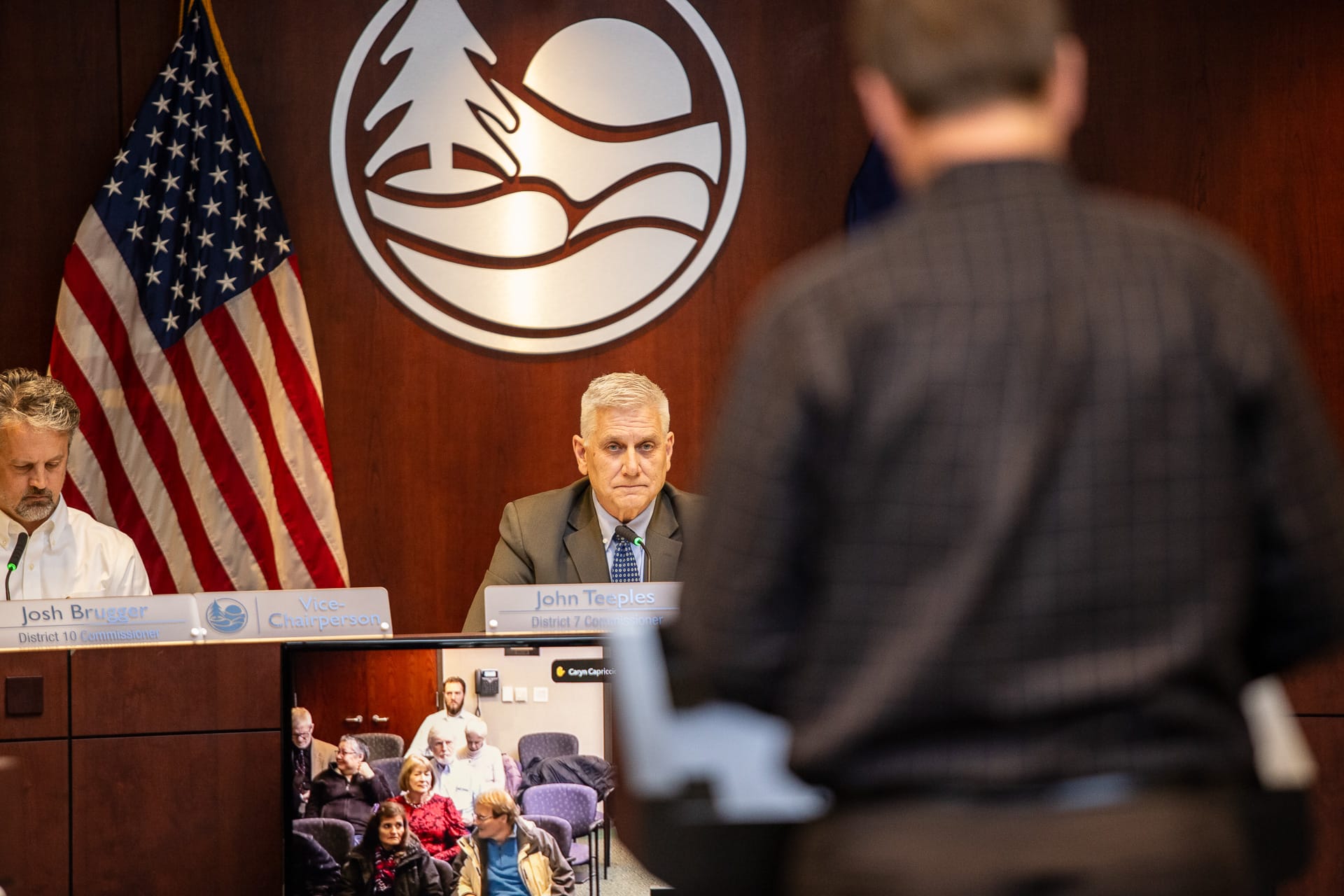
OTTAWA COUNTY — The Ottawa County Board of Commissioners opted not to discuss a proposed settlement offer that could have resolved one of a handful of lawsuits stemming from decisions made by the previous board, led by far-right group Ottawa Impact.
Details have been released about proposed terms that could have settled one of the county's most complicated ongoing lawsuits — if the board of commissioners hadn't rejected the offer without discussion April 22.
How we got here
Plaintiff Dan Zimmer, of Port Sheldon Township, filed the lawsuit Dec. 16, claiming three decisions the board made at its Dec. 10 meeting were legally unenforceable: a contract for remediation of Crockery Lake in Chester Township and a pair of severance agreements for former interim administrator Ben Wetmore and his aide, Jordan Epperson.
On Feb. 25, the commissioners voted 7-3 to ask a court to review the legality of the controversial contract — worth more than $560,000 — after raising concerns about the public process, the agreement’s language that gave the county little control over the project and increased liability should the lake cleanup go wrong.
Read More: Howard challenges legality of severance agreements, Crockery Lake contract
The county has submitted the contract for legal review and is still waiting on a response.
Once the board voted to have the contract independently reviewed, Zimmer dropped that portion of the lawsuit to continue his challenge of the severance agreements with Wetmore and Epperson.
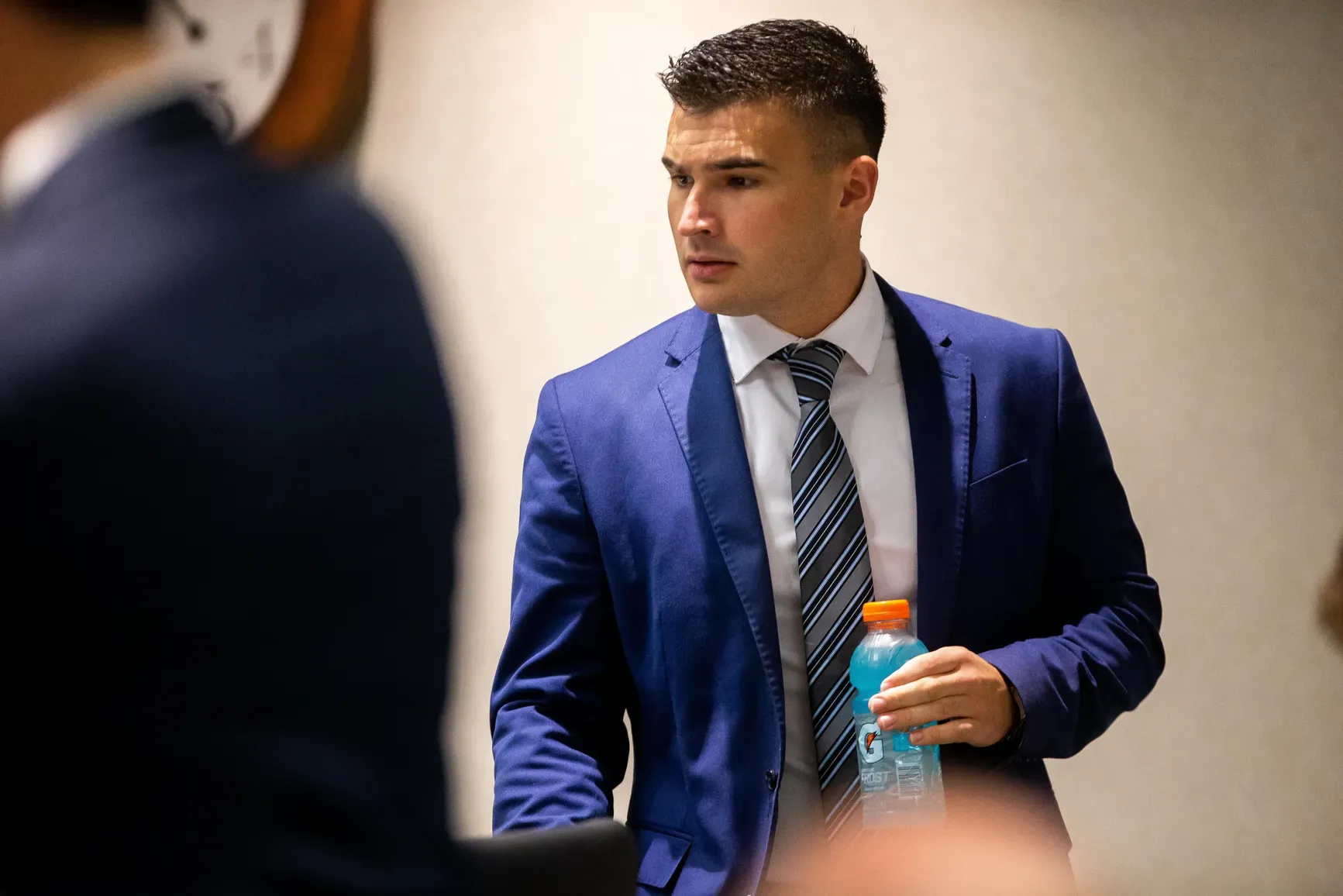
Those agreements are at issue because the former OI-led board approved them after going into separate closed sessions for each employee “to consider the dismissal, suspension, or disciplining of, or to hear complaints or charges brought against, or to consider a periodic personnel evaluation of, a public officer, employee, staff member, or individual agent.”
The problem: Zimmer claims none of those legally allowed reasons were why the board went into closed session, which violates the state's Open Meetings Act.
“On Dec. 10, the commission was not considering the dismissal, suspension, or discipline of either Epperson or Wetmore, and there were no pending complaints or charges against either of them,” Zimmer's attorney, Sarah Riley-Howard wrote in an amended complaint filed March 7. “Furthermore, it was not the time for their periodic personnel evaluations, nor had such an evaluation been completed for any reason.”
After Zimmer filed suit on Dec. 16, the OI-led board brought the severance agreements back to its Dec. 19 agenda to "re-enact" the vote to approve them, then amended to resolve OMA issues, according to then-board chair Joe Moss — something Howard disputes because board deliberations occurred in closed session in the first meeting and open session in the second — without disclosing what happened in the first.
Read More: County to ask court to review Crockery Lake contract as board infighting continues
Read More: Lawsuit drops claim challenging Crockery Lake contract; severance claims to continue
“MCL 15.270(5) requires a public body to re-enact a disputed decision in conformity with the OMA,” Howard wrote. “The Commission only meaningfully deliberated the severance agreements in closed session on Dec. 10, rather than in an open session on Dec. 19, as required by the OMA.
“The Commission has not released the minutes of the closed session from Dec. 10. Thus, the Dec. 19 decision to approve the severance agreements without deliberations in open session or release of the closed session minutes was not made in conformity with the OMA,” she wrote.
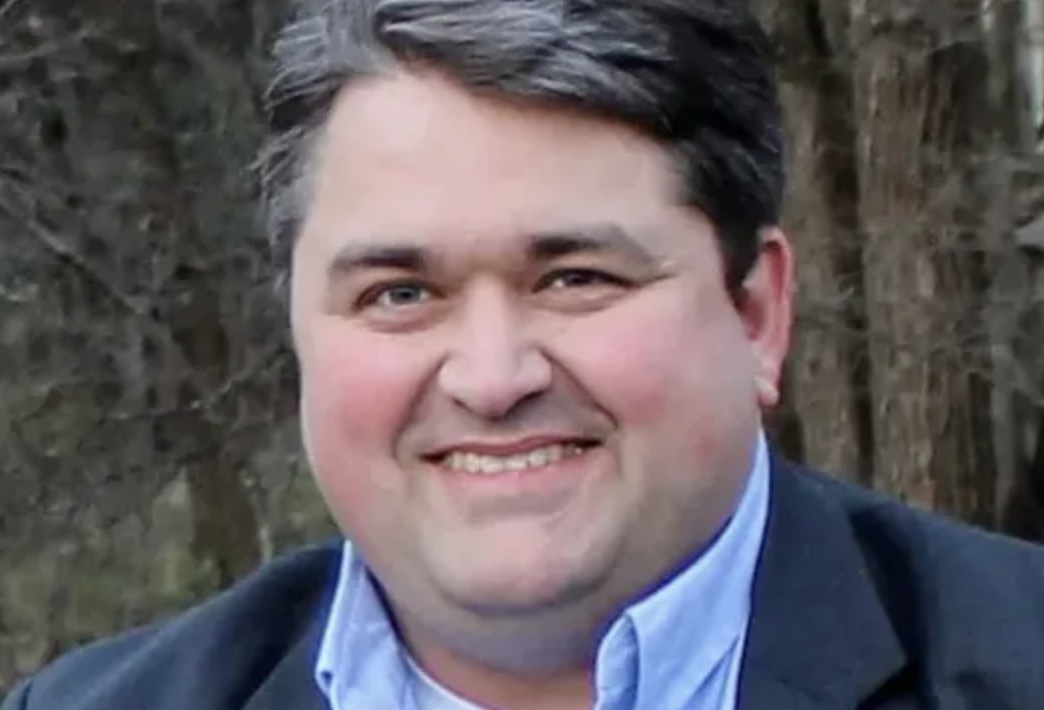
Settlement terms proposed
On March 17, Howard sent a proposed settlement offer to resolve the case.
Under the agreement:
- The county would admit that the first meeting’s discussion/decision on the severance agreements violated the OMA for the reasons alleged in the complaint, and the court declares this to have been a violation of the law.
- The parties agree that the court orders the county clerk to release to the public the closed session minutes from Dec. 10 and the meeting recording within 24 hours of the court’s order.
- The county admits that the second meeting’s re-enactment also violated OMA, and the court declares this to have been a violation of the law.
- Zimmer concedes that invalidating Wetmore’s severance agreement is no longer a viable remedy, and voluntarily withdraws the demand for the county to reclaim the funds.
- Zimmer is awarded $500 in statutory damages.
- The county pays Howard's law firm $19,500 in attorney fees.
"It is our view that this would finish this case now, and put it behind everyone, as well as serve the important interest of transparency to inform the public of what occurred during the first meeting’s closed session," Howard wrote in an email dated March 17 to the county's corporation counsel.
"The alternative is everyone spending quite a bit more in attorney fees when this likely goes to appeal, and dragging it out for more than a year — and probably ending up right where we are proposing now — except with a lot more than this in attorney fees,” she said.
The board opted not to go into closed session April 22 to discuss Howard's settlement proposal, meaning commissioners were individually notified of the terms. They then voted in open session to reject the offer.
Chair John Teeples, a traditional Republican, said April 28 that discussing the settlement proposal was "premature" because he had not yet had the opportunity to apprise the full board on the facts of the case.
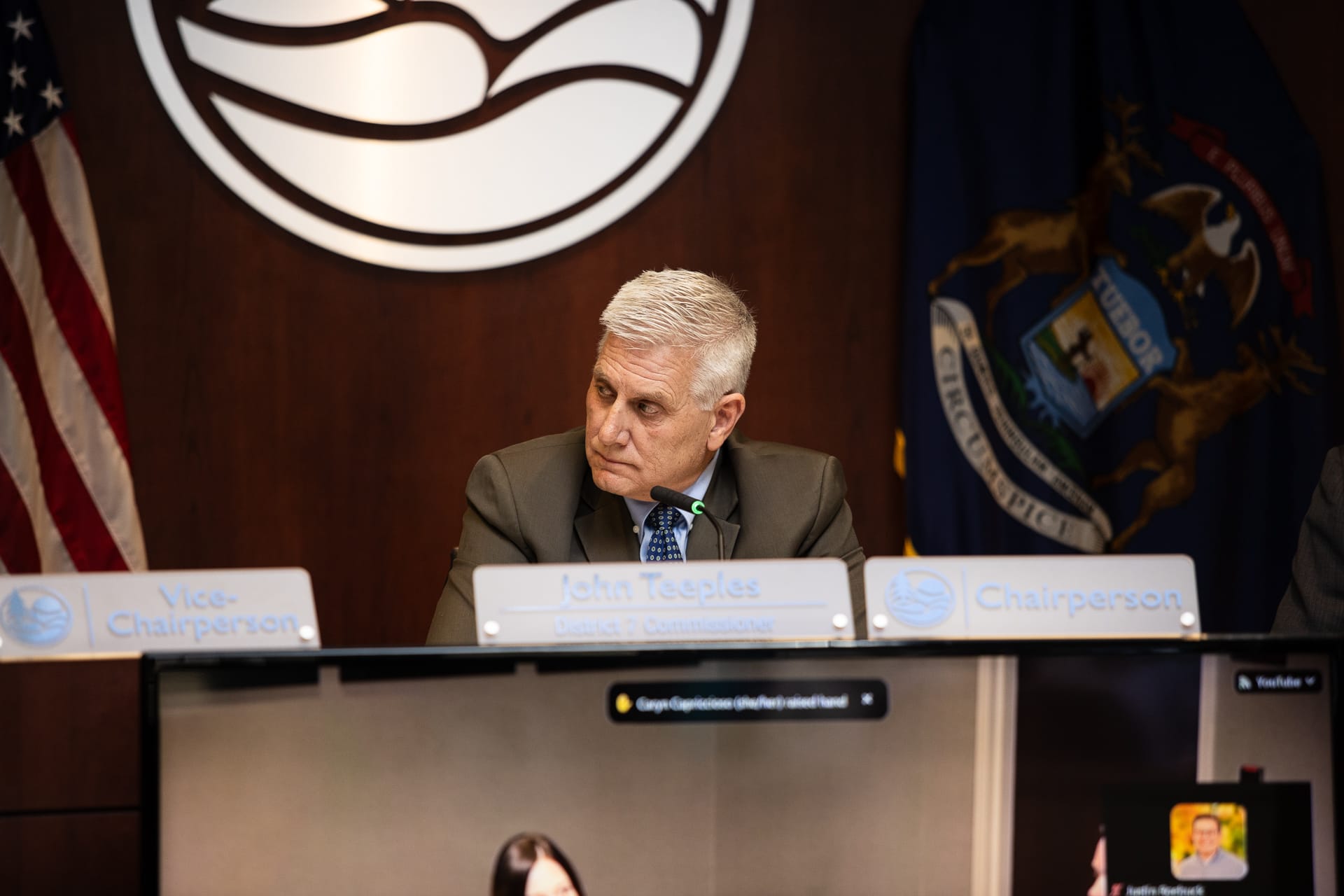
"We will likely be going into closed session at a future meeting, so that I can bring all the commissioners up to speed on the whole case," Teeples said. "I definitely intend to bring all the board members up to speed on what that case is all about. We weren't ready to do that yet.
"The commissioners don't all have understanding of the facts, and so that's the only reason we didn't want to go into closed session. But it's coming; believe me, it's on my agenda. We're getting there," Teeples said.
Howard said she was disappointed that the board didn't even attempt to discuss the offer, which would have resolved one of three still active lawsuits involving the county and its commissioners.
“I’m disappointed that the current commission voted not to even discuss this in closed session because I believe it is missed opportunity for everyone," she said. "My client was willing to give up his request for injunctive relief that the court order the unwinding of these severance contracts. He is making a major concession to let go of a claim for almost a half million dollars of county money that he takes the position was not lawfully authorized to have been spent.
"Not trying to settle this case seems like an unnecessary use of time and money, particularly when we invited counteroffers if defendants cared to make one. But we will press on with litigating the case," Howard said.
What happens now
Because the settlement proposal was rejected, the case will move forward in the discovery process, where both sides gather and exchange information and evidence relevant to the case.
On April 24, Howard notified Mike Bogren, the county's attorney in the case, that she was requesting a copy of the Dec. 10 closed session minutes and the related audio recording. She also filed a subsequent subpoena for county Clerk Justin Roebuck, whose staff is responsible for curating and storing the sensitive records, to depose him and bring the records — a deposition "duces tecum" translates to "bring with you."
Howard informed Bogren that she and her client were willing to agree to a protective order that would prohibit them from disclosing the contents of the closed session minutes until a court orders it.
Bogren, who previously told ONN he doesn't comment on ongoing cases, told Howard in an April 25 email he planned to object to Howard's discovery request to produce the minutes and recordings of the closed session and that he would file a motion with the court to quash the subpoena.
Support Our Work
Ottawa News Network is a nonprofit news service dedicated to providing the residents of Ottawa County with trustworthy, community-driven news. ONN treats journalism as a public good — something that enriches lives and empowers Ottawa County’s 300,000-plus residents to stay engaged, make informed decisions, and strengthen local democracy. Please consider giving today.
Howard said she understood his position, but that she planned to move forward.
"As you probably anticipate, I respectfully disagree with your position. We believe that the statute’s plain language authorizes discovery under the type of protective order that we have offered of the minutes and the recording(s) in this instance," she told Bogren via email. "Plaintiff’s lawyers here are not 'the public,' but officers of the court."
Howard said reviewing the records are critical to the case because the county has maintained it went into closed session for a legally acceptable reason on Dec. 10 — which some commissioners have disputed.
"Admissions by the commissioners and the known facts of the surrounding circumstances point to the opposite conclusion," Howard said. "The only way to ascertain the true purpose of the closed session is for the lawyers and the court to examine the minutes and recording(s) from closed session, and so it is therefore 'required' by this civil action," she wrote.
On May 5, Bogren filed the motion to quash, claiming the subpoena to depose Roebuck lacks a legal basis and "seeks to coerce an illegal act."
"Plaintiff’s subpoena is based on nothing more than the existence of the lawsuit he filed. If the filing of a lawsuit were all it took to invade the closed session privilege, there would be no purpose to Freedom of Information Act requests, or indeed any point to obtain a judgment under the statute," Bogren wrote in the filing. "That OMA explicitly requires that the minutes of a closed session may be disclosed only upon entry of a judgment finding the challenged meeting improper."
Late Monday, Howard defended Zimmer's legal position.
"We firmly believe that the language of the FOIA law entitles our client to the closed session meeting minutes and recordings at this stage of the case," she said. "This is an important open government issue, and we look forward to having this material eventually to be able to prove that the closed session was not lawful and should have taken place in front of the public."
A hearing on the motion to quash the subpoena has been scheduled to take place at 8:30 a.m. Friday, June 6, before 17th Circuit Court Judge Scott A. Noto, Kent Circuit Court.
— Sarah Leach is the executive editor of the Ottawa News Network. Contact her at sleach@ottawanewsnetwork.org. Follow her on Twitter @ONNLeach.

